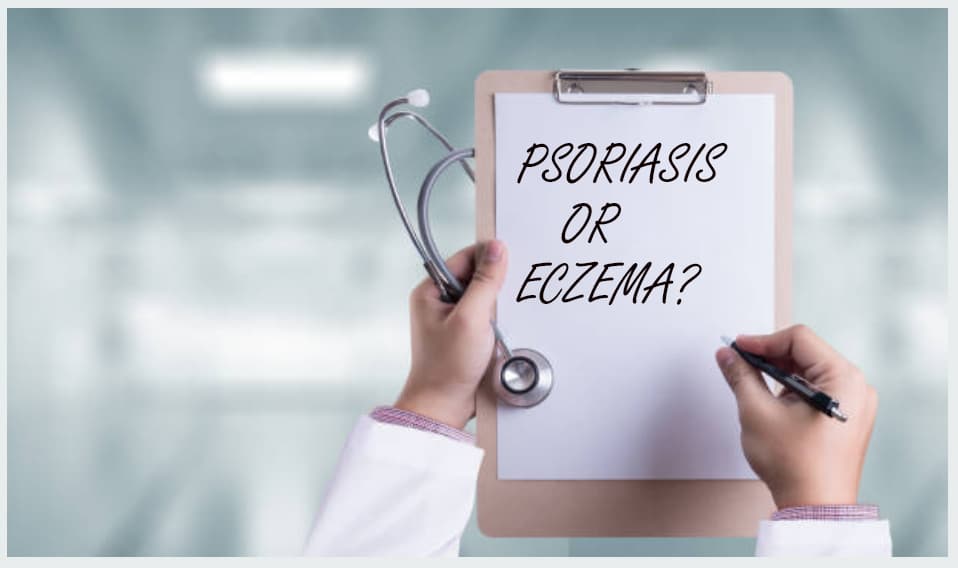Psoriasis vs Eczema
By: Lauren Fanta
With colder months approaching, as is the inevitable discomfort of itchy, dry skin. Now is the time to get your psoriasis or eczema under control. Although both are considered inflammatory skin conditions, understanding the difference between psoriasis and eczema can help you understand different treatment options used to effectively manage each condition.
Causes and Appearance
Psoriasis is a chronic autoimmune skin condition that is a product of factors inside the body. The body’s overproduction of skin cells leads to the buildup of silvery-white scales. This buildup in scales causes red, inflamed skin where a person experiences intense itching.
Eczema, or atopic dermatitis, is generally the skin’s response to environmental factors. The skin’s hypersensitivity reaction to triggers, such as dyes, fragrances, or other irritants, leads to red, inflamed skin that also produces symptoms of intense itching, cracking, peeling, and even blistering of the skin. Eczema is very common in infants and throughout early childhood, most outgrowing the condition by early adulthood.
Location
Psoriasis tends to focus on certain areas, including the:
● Elbows
● Knees
● Scalp
● Head
● Neck
Alternately, eczema tends to be located:
● Behind the knees
● Inside of the elbows
● Wrists
● Ankles
● Neck
Treatment
Treatment of psoriasis includes: topical corticosteroids, light treatments, and in moderate to serious cases types of systemic medications referred to as biologics. Biologics are injectable medications that target the immune response that leads to rapid skin cell growth. Commonly prescribed biologics include, Humira, Stelara, and Enbrel.
Topical corticosteroids and being diligent in moisturizing help reduce symptoms associated with eczema. Using fragrance free and dye free products also help to avoid hypersensitivity reactions to ingredients within everyday products you may use.
Whether you think you may have psoriasis or eczema, our dermatologists here at Derick Dermatology can help make your condition more tolerable by helping you manage your symptoms and reduce flare-ups. Make an appointment to move forward in taking control of your psoriasis or eczema today.







